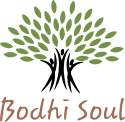SCHEDULE & PROGRAM
(You can choose your preference on which ones you would like to participate or skip)
| Time | Day 1 | Day 2 | Day 3 | Day 4 | Day 5 |
| 06:00-07:30 | Yoga and Meditation | Yoga and Meditation | Yoga and Meditation | Yoga and Meditation | Yoga and Meditation |
| 07:30-09:00 | Breakfast | Breakfast | Breakfast | Breakfast | Breakfast |
| 09:00 – 10:00 | Morning Session – Introduction, Program overview, Ice breakers | Summary and Sharing | Summary and Sharing | Whole day Outdoor Cultural Immersion and Nature walk trips around Bali | Summary and Sharing |
| 10:00-10:30 | Break | Break | Break | Break | |
| 10:30-12:30 | Creative Reflective Practices | Role Play and Catharsis Sessions | Passion Play | Moving Forward | |
| 12:30-2:00 | Lunch | Lunch | Lunch | Lunch | |
| 2:00-3:30 | Creative Reflective Practices | Role Play and Catharsis Sessions | Passion Play | Moving Forward | |
| 3:30-4:00 | Break | Break | Break | Break | |
| 4:00-5:30 | Tai Chi | Yoga and Meditation | Yoga and Meditation | Yoga and Meditation | |
| 5:30-07:00 | Break for the day | Break for the day | Break for the day | Break for the day | Break for the day |
| 07:00-09:00 | Dinner | Dinner | Dinner | Dinner | |
| 09:00-10:00 | Thandavam – Bonfire event | Thandavam – Bonfire event |
Yoga and wellness
I had my first experience with aid and development work when I was quiet young. I was so enthusiastic and optimistic about the possibility of making a positive impact on the communities I served and was lucky to be involved in diverse projects ranging from teaching village children how to swim setting up a primary health care clinic in a war zone. There was no doubt that I could make an impact, but I often felt the weight of what I was not able to change as well. Living conditions were challenging, working hours were long, and time away from family and loved ones even longer.
To feel fulfilled and to be effective in humanitarian or development work we have to look beyond the typical measures of success in business. We must remember that our successes don’t always fit into boxes in spreadsheets and reports, even if our shortfalls do. We have to be strong enough to allow ourselves to be vulnerable, paving the way for paradigm shifts, change and growth.
These are the exact lessons yoga teaches us. Yoga is a practice of process, not attainment. You never get “there” in yoga because it’s a never-ending journey within. Each time we step onto our mats we drop all expectations of ourselves and we tune in to where our bodies and minds are in that moment. Even if we try to predict what poses we may or may not be able to do, the truth will only unfold the moment we try. We should lower our guards to make space for all the positive possibilities the class can offer. Our poses become the embodiment of balance, of holding on and letting go, of doing and being, of response over reaction. In every Bodhi Soul retreat, I will help you cultivate this knowledge so you may take it off the mat and integrate it into your daily life.
Role Playing and Catharsis
Role playing was developed by Jacob Moreno, a Viennese psychologist who contended that people could gain more from acting out their problems than from talking about them. This method requires a protagonist (the client whose problems are being acted out); auxiliary egos (group members who assume the roles of other people in the protagonist’s life); an audience (other group members who observe and react to the drama); and a director (the therapist). The protagonist selects an event from his or her life and provides the information necessary for it to be re enacted. Although every detail of the event cannot be reproduced, the re-enactment can be effective if it captures the essence of the original experience. The group members who serve as auxiliary egos impersonate significant people from the protagonist’s past or present, following the protagonist’s instructions as closely as possible. Techniques used in the re-enactment may include role reversal, doubling, mirror technique, future projection, and dream work.
The therapist, acting as facilitator and director, assists the protagonist in orchestrating the scene, offers emotional support, enlists the audience’s response, and helps the protagonist gain new insights from the experience. Immediately preceding the re-enactment is a warmup period designed to prepare all the participants for the experience by motivating them and establishing a safe and trusting atmosphere. After the re-enactment, members of the audience discuss their reactions to the re-enactment, including ways that it touched on their own experiences. Encouragement and support is offered to the protagonist, as well as suggestions for responding to the problems dealt within the re-enactment.
Catharsis is the Greek word for cleansing and is used in psychology to explain the process of rapidly releasing negative emotions. It is the process of venting aggression to release or get rid of emotions. Have you ever been so angry that you went outside and yelled or hit a pillow? Psychologists call this method catharsis. You may have heard someone say something was ‘cathartic,’ meaning it released emotion. For example, if you are angry you might hit something or scream, and that might make you feel better.
The thought behind catharsis theory is that feelings build up and create pressure if not vented, in the same way air builds up in a balloon until it bursts. Releasing emotions decreases the pressure or tension in the person so they have fewer negative emotions and are less aggressive.
In therapy settings, catharsis is more than just venting anger. Instead, it’s a re-experiencing of a traumatic event and expressing the strong emotions that are associated with them. Therapies that emphasize emotions, such as Gestalt therapy, create role-play simulations to facilitate safe expression of emotions.
At the Bodhi Soul program, we combine these two techniques in two ways depending on the group/individual dynamics for each batch. These are:
- Directly relating to your immediate needs and is of specific nature or
- Broad enactment of a scenario selected by the group that is of general in nature.
Creative Reflective practices to build resilience
Resilience is not in how you push through, it is in how you recover.Reflective practices are part of how we recover. While too often ignored, they are essential to our wellbeing and growth as individuals and professionals working in challenging contexts. Reflective practices actively engage the intentional journey inside ourselves while also holding the secrets to nurturing innovation and creativity. While they vary widely in scope, some of the best reflective activities are those that occupy the hands, body, and brain enough to allow the mind to wander. Creative reflective processes within the Bodhi Soul program is not a workshop session. You will not sit and listen to the latest peace building theories. The ‘classroom’ will be the places where conversations unfold. It will be the green spaces and ancient ruins where you walk. It will be around the table as food and experiences are shared. It will be the quiet spaces of reflection as you hear the journeys of others and perhaps listen to your own stories in ways you hadn’t anticipated. It will be through remembering the faces of the people you’ve worked alongside, the voices of those who have guided you, and the memories of those moments you return to when you feel lost. It will be in the wisdom of pressing pause on the constant chatter in your mind and observing what emerges from the silence. It will be through new ways of exploring the paths you’ve been on and the paths that may lie ahead



